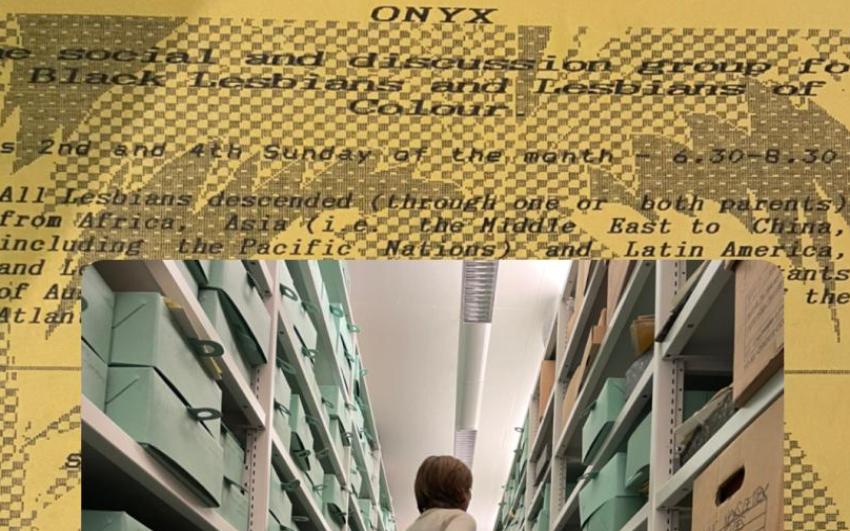Co-director of Mirrorball, Chloe Christian, talks about the new company's first production: an exploration of intergenerational learning, cultural memory and unabashed queery joy.
Grills is commissioned by Old Diorama and Camden People's Theatre as part of Camden NoW and comes to CPT in December 2022.
In August 2022, I stumbled across a video about the Camden Lesbian Centre + Black Lesbian Group. The video was of an archivist at the Glasgow Women’s Library speaking about the centre which existed on Phoenix Road behind Euston between 1985 and 1995(ish). I was shocked that I had never heard of it. My co-director, Olivia Dowd, and I had made a filmed performance in 2021 exploring Queer protest throughout the 80s and loss of Queer space - yet we had never heard of the CLCBLG, despite being Camden locals. That same day, Liv and I applied for the Camden NoW! Commission from CPT and Old Diorama - and we received it!
We spent the Summer deep diving into the Centre. We visited the Glasgow Women’s Library and feverishly burrowed into the reems of newsletters, flyers, typewriter written meeting minutes, and cut-and-pasted collages about local Queer events - all lovingly saved for us to explore between bites of Gregg’s vegetarian sausage rolls. We discovered a treasure trove of joy, and some pain. These giants, whose shoulders we now stand on, fought doggedly for a space to hold gatherings and for the rights in our current legislation. There was GEMMA, the disabled lesbians support group; Zammimass & Young Zamis for radical Black Lesbians; Shakti Khabar, the South Asian Lesbian and Gay Network’s newsletter; Onyx for socials and discussions amoungst Black Lesbians and Lesbians of Colour; and numerous events, socials and support groups for mothers, unwaged people, survivors, and those still closeted.
What it made us consider was how tangible it all was. Thirty years ago, for a whole decade, there was a building where you could sit with a cup of tea, play pool, read a book, and eat a free lunch while talking to others who shared your experience. Here we were, 30 years later, holding physical paper that had been passed from hand to hand, secretly shoved in pockets, telling you there was a building in North London full of friends. Communicating this now would be a seamless click and seeing bodies like yours is an algorithm away; but we no longer have the free tea, the pool table, or the place to go where you know there will be a hand to hold. There is greater clarity of communication in a digital world, but is there less texture? Less quality?
The saving of these archives, 555 miles away from its original home, was an act of protest. We discovered terminology considered contemporary (such as Intersectionality, men who have sex with men, and Women of Colour) used casually. The suggestion that these concepts are politically vogue is a result of the invisibility of histories such as these. If this was what was subjectively saved, and the world looks like it does, then what wasn’t saved?
Where would we be if we had had the space to orally transmit these histories, these words of protest, and to display these archives proudly where they were made?
Our first production under a new banner, Mirrorball, will be bringing these gifts home - just in time for Christmas.
